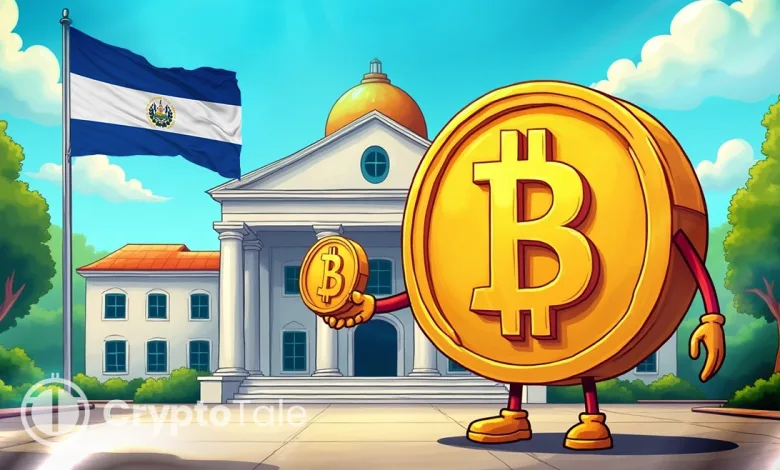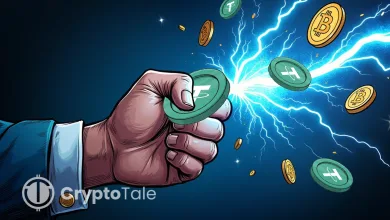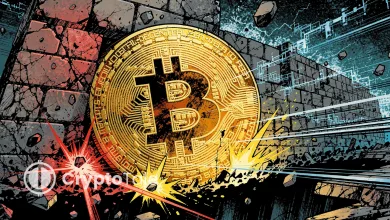El Salvador Adds 8 Bitcoin, Reserves Hit Above $690 Million

- El Salvador’s Bitcoin holdings rose by 51 BTC this month, now valued above $690 million.
- IMF loan terms urged restraint, yet records show uninterrupted Bitcoin accumulation.
- National reserves were split into 14 wallets to boost transparency and mitigate risk.
El Salvador quietly boosted its Bitcoin reserves this week, purchasing eight additional coins and raising its total to 6,332.18 BTC. The National Bitcoin Office confirmed the acquisition on September 27, 2025, through its official X account. The country holdings are now valued above $690 million, showing its ongoing strategy of steady accumulation despite external pressure.
Steady Purchases Amid Policy Changes
The government started accumulating Bitcoin back in 2021 after passing the Bitcoin Law, which allowed the asset legal tender status. That policy placed El Salvador as the first country worldwide to recognize Bitcoin alongside the USD.
However, by January 2025, the government revoked its mandatory use to secure a $1.4 billion International Monetary Fund loan. Despite the change in legal status, daily purchases continued. Data shows that 51 BTC were acquired over the past month, equal to nearly $5.5 million.
According to the National Bitcoin Office, the holdings rose from 6,318.18 BTC on September 14 to the current 6,332.18 BTC. The accumulation strategy has not been less of scrutiny locally and abroad due to Bitcoin’s volatility and fiscal implications.
IMF Conditions and Growing Scrutiny
The IMF deal in early 2025 required El Salvador to limit Bitcoin purchases to strengthen macroeconomic stability. Conditions also included scaling back policies tied to public sector Bitcoin use.
Despite all that, the Bitcoin Office’s records show continued acquisitions. This contrast with IMF conditions has become an issue of scrutiny over fiscal transparency. In July, the IMF reported no Bitcoin purchases since February, casting doubt on the government’s disclosures.
The Bitcoin Office did not address the claim directly but instead kept posting confirmations of new acquisitions on social media. Notably, President Nayib Bukele also reaffirmed in March that purchases would continue regardless of external criticism.
While the IMF demands predictability, El Salvador has treated Bitcoin as a long-term reserve asset. Purchases have been funded through budget allocations and remittances, while mining using geothermal energy from the Tecapa volcano has added 474 BTC since 2021. This continued acquisition shows continued belief in Bitcoin even under international scrutiny.
Related: El Salvador Strengthens Bitcoin Reserves Against Quantum Threats
Managing Risks and Expanding Infrastructure
In August, the Bitcoin Office redistributed $678 million worth of Bitcoin from a single address into 14 new wallets. Each address holds a maximum of 500 BTC, equal to $54 million at current prices. Authorities described this as a precaution against quantum computing risks and a measure to boost transparency.
The government has also worked to expand infrastructure tied to its Bitcoin experiment. Construction continues on the Airport of the Pacific in Conchagua, planned to serve the future Bitcoin City project. In addition, a new bill passed in August enables major financial institutions with at least $50 million in capital to offer Bitcoin and other digital asset services to clients with holdings above $250,000.
After the 2021 adoption of Bitcoin as legal tender, El Salvador recorded a 30% rise in tourism, and surveys indicated that by 2024, nearly 7.5% of the population used Bitcoin for daily transactions. El Salvador now ranks among the world’s top six national Bitcoin holders, joining countries such as Bhutan, the United Arab Emirates, and Ukraine. Its current reserve places it just behind Bhutan, which holds 6,964 BTC. Larger holders include the U.S with 198,021 BTC and China with 190,000 BTC, as per Bitcoin Treasuries.
Meanwhile, El Salvador Bitcoin accumulation is growing at a steady pace, even as the government adjusts its policies. The strategy has had sustained scrutiny from both international organizations and locally, but there is a consistent accumulation. With 6,332.18 BTC secured, the Central American nation is committed to holding Bitcoin as part of its reserves.




